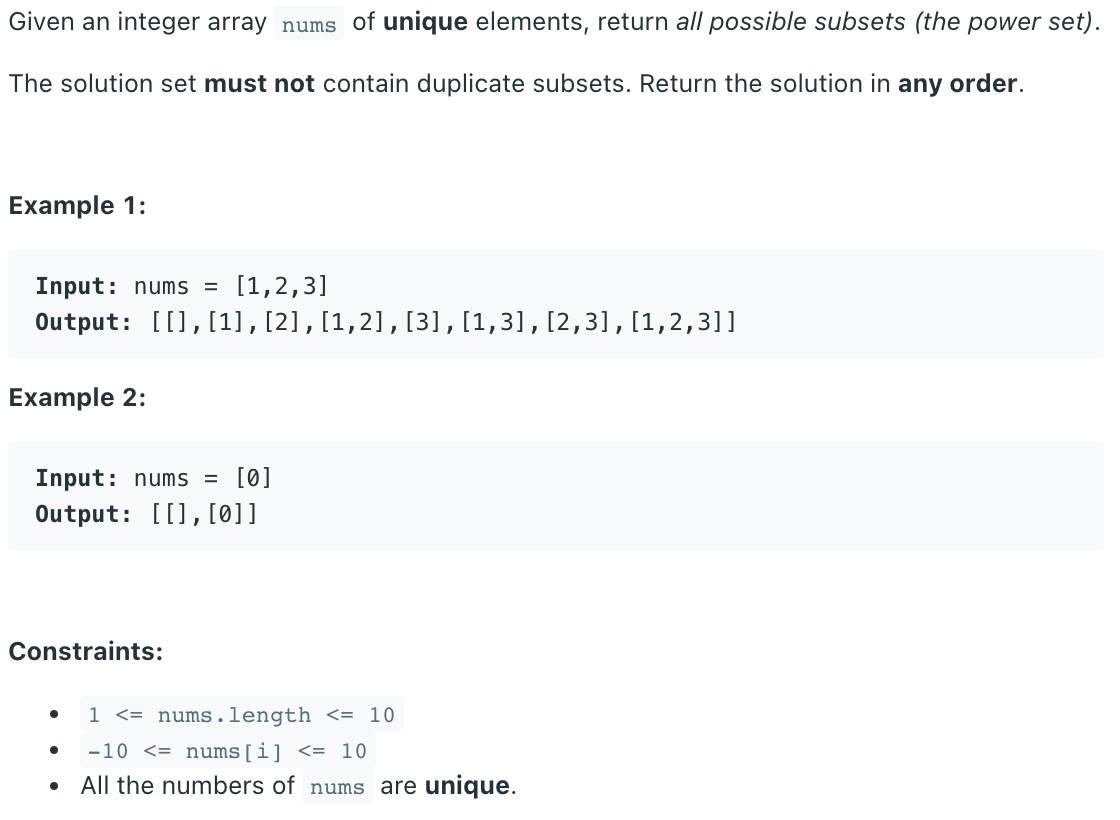Subsets
franklinqin0 ArrayBacktrackingBit

# Solution
There are possibilities, and for each possibility it takes operations to add/not add the nums[i] element. Hence the time complexity .
# Cascading
Complexity
time:
space:
def subsets(self, nums: List[int]) -> List[List[int]]:
res = [[]]
for num in nums:
res += [subset + [num] for subset in res]
return res
1
2
3
4
5
6
7
2
3
4
5
6
7
# Backtracking 1
Complexity
time:
space:
def subsets(self, nums: List[int]) -> List[List[int]]:
n = len(nums)
res = []
temp = []
def backtrack(i):
if i == n:
# have to copy temp by value
res.append(temp[:])
return
temp.append(nums[i])
backtrack(i+1)
temp.pop()
backtrack(i+1)
backtrack(0)
return res
1
2
3
4
5
6
7
8
9
10
11
12
13
14
15
16
17
2
3
4
5
6
7
8
9
10
11
12
13
14
15
16
17
# Backtracking 2
def subsets(self, nums: List[int]) -> List[List[int]]:
nums.sort()
res = []
def backtrack(nums, path):
res.append(path[:])
for i in range(len(nums)):
path.append(nums[i])
backtrack(nums[i+1:], path)
path.pop()
backtrack(nums, [])
return res
1
2
3
4
5
6
7
8
9
10
11
12
13
2
3
4
5
6
7
8
9
10
11
12
13
# Binary Sorted Subsets
Each temp can be represented as a binary string. If a digit i is , nums[i] is in; o.w., it's not.
Complexity
time:
space:
def subsets(self, nums: List[int]) -> List[List[int]]:
res = []
n = len(nums)
for mask in range(1 << n):
temp = []
for i in range(n):
if mask & (1 << i):
temp.append(nums[i])
res.append(temp)
return res
1
2
3
4
5
6
7
8
9
10
11
12
2
3
4
5
6
7
8
9
10
11
12